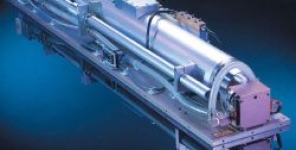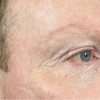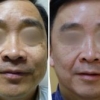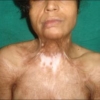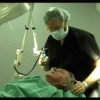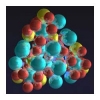Trattamento postoperatorio precoce delle cicatrici chirurgiche attraverso l'impiego di un laser frazionato ad anidride carbonica: uno studio di metà cicatrice, con valutatore in cieco
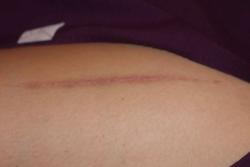 Sebbene di recente sia stata posta l'attenzione sul trattamento precoce delle cicatrici chirurgiche, rimane ancora da chiarire il momento ottimale per iniziare il trattamento con il laser frazionato e il suo effetto sul rimodellamento della cicatrice.
Sebbene di recente sia stata posta l'attenzione sul trattamento precoce delle cicatrici chirurgiche, rimane ancora da chiarire il momento ottimale per iniziare il trattamento con il laser frazionato e il suo effetto sul rimodellamento della cicatrice.
Obiettivi
Valutare la sicurezza e l'efficacia del trattamento di cicatrici chirurgiche con un laser frazionato ablativo all'anidride carbonica (CO2), durante l'iniziale periodo postoperatorio.
Materiali e Metodi
Abbiamo condotto uno studio prospettico, su metà cicatrice e con valutatore in cieco che ha coinvolto 16 cicatrici post-operatorie di 15 pazienti. I soggetti hanno iniziato il trattamento dopo 3 settimane dall'intervento chirurgico e sono stati trattati con due sedute di laser frazionato alla CO2 su metà cicatrice e ad intervalli di 2 settimane. Tutti i pazienti sono stati seguiti per 3 mesi dopo la sessione finale del trattamento.
Risultati
Tre mesi dopo l'ultimo trattamento, è stata notata una maggiore diminuzione della Scala della Cicatrice di Vancouver nella metà trattata delle cicatrici, soprattutto in termini di struttura e spessore. Anche i pazienti hanno espresso un maggior grado di soddisfazione per il lato trattato: questo dato è stato ottenuto in base ad una scala soggettiva di 4 punti. Solo un paziente ha sperimentato un effetto negativo, lo sviluppo di ipertrofia, sia sul lato trattato della cicatrice che su quello non trattato.
Conclusione
Il laser frazionato alla CCO2 rappresenta un'efficace modalità di trattamento per le cicatrici chirurgiche nel periodo immediatamente postoperatorio.
Storia della pubblicazione:
Titolo: Early Postoperative Treatment of Surgical Scars Using a Fractional Carbon Dioxide Laser: A Split-Scar, Evaluator-Blinded Study
Rivista: Dermatologic Surgery. doi: 10.1111/dsu.12228
Autori: Sang Hee Lee, Zhenlong Zheng, Mi Ryung Roh
Affiliazioni:Department of Dermatology, Yonsei University College of Medicine, Seoul, Korea Cutaneous Biology Research Institute, Yonsei University College of Medicine, Seoul, Korea Department of Dermatology, Yanbian University Hospital, Yanji City, Jilin Province, China
Abstract:
Background Although focus has recently been directed toward the early treatment of surgical scars, the optimal time at which to initiate treatment with fractional laser and its effect on scar remodeling remains controversial. Objectives To assess the safety and efficacy of treating surgical scars using an ablative carbon dioxide (CO2) fractional laser during the early postoperative period. Materials and Methods We performed a prospective, split-scar, evaluator-blinded study on 16 postoperative scars of 15 patients. Patients began treatment 3 weeks after surgery and were treated in two sessions of CO2 fractional laser therapy on half of the scar at 2-week intervals. All patients were followed for 3 months after the final treatment session. Results Three months after the last treatment, a greater decrease in Vancouver Scar Scale score was noted in the treated half of the scars, especially in terms of texture and thickness. Patients also expressed a significantly greater degree of satisfaction with the treated side as assessed using a subjective 4-point scale. Only one patient experienced any adverse effect, which was the development of hypertrophy, on the treated and untreated side of the scar. Conclusion CO2 fractional laser is an effective treatment modality for surgical scars in the early postoperative period.
